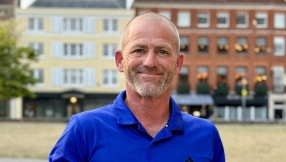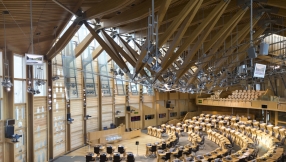
‘Stay Curious’ is the slogan promoting the popular ‘Alpha Course’ that thousands of churches across the globe will be running in coming months.
Personally, I reckon that ‘stay curious’ could be great advice for anyone trying to navigate our fractious 21st century world.
The Alpha Course is “a series of group conversations that freely explore the basics of the Christian faith in an open, friendly environment.” Everyone’s welcome, say the organisers, no matter their background or beliefs. The course has been successful in helping hundreds of thousands of people understand and accept the faith.
The idea is that you come to look at Jesus, his life and teachings, with an open mind. Questions are welcome and encouraged.
That seems a long way from how most of our society is operating just now.
Instead, we seem to be shouting at each other from our silos or social media accounts. All of us are so sure that we are right, and that everyone else has the wrong ideas or motives.
One side announces they have a ‘simple solution’ to the problems facing the city, the country or the world. Everyone else shouts it down as unworkable and unrealistic. We stand apart, increasingly distant and divided. Suspicion reigns.
The algorithms that control so much interaction online are designed to bring out strong reactions. Posts or opinions that make us angry – or maybe strongly agree – are the ones served up to us.
Organisations upload posts designed to get a sharp response and increase traffic to their site. In contrast, it’s good when groups avoid clickbait stories and promote a range of viewpoints.
But what should I do if I come across someone with views that are massively different to mine? What can I do when I hear or see an opinion that makes me respond strongly?
That brings me back to the thinking behind the success of the Alpha Course. Stay Curious.
It takes some doing, but maybe our reaction should be: Take a deep breath … pause for a few minutes … and then ask the question, ‘Why does this person hold this view?’
Instead of viewing the man or woman airing this opinion as an enemy to be challenged, confronted and corrected … perhaps we should simply stay curious.
How would this work? It might be about gently asking the question – in a non-challenging way – about why they hold this view. It could be then you’d learn something about the person and their life experiences that explains their viewpoint.
It could be they’d give some more statistics or information that would justify their position. Who knows, you may even find areas on which you agree. Or not.
Either way, you have entered into a conversation. You have seen the other person as a human being, not just ‘an enemy’, a social media account or the writer of an anonymous comment.
Someone said to me that he could never become a Christian, because he asked too many questions. And yet Jesus faced question after question during his time on earth. Much of his teaching was in response to challenges.
Questions are good. They help us understand the world around us. They help us to learn more. They keep our minds agile and open them to new opinions and ideas. They help us see other people as human beings, rather than stereotypes.
The alternative is closing down our minds, listening only to people who agree with us, and opinions that chime with ours. That sounds dull, and possibly dangerous.
In our 21st century world of echo chambers and shouty politics, where is the space for real discussion and debate? Where are the opportunities for people’s views to be challenged and changed?
Maybe wider society could learn from settings like the Alpha Course where people can bring their viewpoints and opinions and discuss them with others holding different views.
Or are we already too embedded in our silos, with our own opinions and the people that agree with us? Is all chance of meaningful dialogue already lost?
For the sake of our shared lives, for our communities and our nation, I hope and pray that enough of us can ‘stay curious’ so that open debate and discussion can still be held.
Curiosity. Maybe it’s the way of the future. Or maybe, the only way.
Rev Peter Crumpler is a Church of England minister in St Albans, Herts, UK and a former communications director with the CofE. He is the author of ‘Responding to Post-truth.













